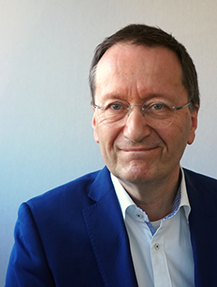Trademarks & Copyright law
As a lawyer, Dr. Andreas Leupold offers nationally and internationally operating businesses and groups of companies well-founded legal advice in drafting and negotiating trademark license agreements and trademark prior rights agreements, in the granting and purchasing of rights of use for copyright-protected works, in pursuing copyright infringements, in enforcing rights to cease-and-desist and to compensation of damages resulting from the infringement of ancillary copyright or intellectual property rights, the seizure and confiscation of plagiarisms and the destroying of unauthorized adaptations or redesigns of protected works, in the enforcement of trademark rights resulting from German, International and Community trademarks, in combating trademark piracy and in the deletion of trademark applications filed in bad faith. If a lawyer is consulted in due time in the case of the licensing or transfer of industrial property rights and the assistance of a lawyer is sought for drafting and managing license contracts costly legal disputes can often be avoided.
In the areas of trademark and copyright law as a lawyer he has represented renowned companies from the information technology industries, the media and entertainment industries, the luxury and consumer goods sectors, and in the publishing industry for many years and one of the world largest automobile renting companies in the enforcement of claims to compensation before court in a two figure million range resulting from the unauthorized use of this company’s trademarks. As infringements of copyright often do not stop at national borders, his clients profit from the clarification of complex chains of rights and the protection of so-called “works made for hire” and also from his knowledge of US copyright law, which he gained in the course of his studies for a Master of Law at the University of Texas School of Law.
Whoever wants to efficiently combat the unauthorized appropriation of third-party intellectual property rights, the infringement of well-known trademarks or product piracy must today be prepared to be active himself and to take those measures that are necessary for the effective and sustainable enforcements of his rights. The theft of technology takes place today via the most different paths and not only via the Internet. Among these paths are the distribution of illegal copies of popular application software (known as “warez”) and computer games (“gamez”) by so-called release groups as well as the making publicly available of complete copies of CDs and DVDs (so-called “ISOs”) and P2P file shares on file-sharing platforms, the distribution of rips and appz, as well as copyright-violating copies of current films and videos by means of downloads or on DVDs or blu-rays (so-called “moviez”), the distribution of so-called nukes, FXP, and NFO releases, dumps, scriptz and fake files as well as crackz (programs for circumventing digital rights management (DRM) processes), dealing with so-called “keygens” and. programs for the illegal generation of serial numbers (so-called “serialz”) as well as the sales of so-called e-bookz and no-CDs, the copy protection of which has been deactivated. There are also increases in the dealing with patches and portable tools (programs or games that require no installation or serial numbers and can mostly be started directly using USB sticks. The music industry also still has to contend with unauthorized recordings of concerts (so-called “bootlegs”) and the making publicly accessible of pirated copies of particularly sought-after music works on the Internet and the sale of them on recording media.
Similar challenges as those of file sharing that the music, film and computer games industries have brought with them are now also being faced by businesses that use industrial 3D printing for manufacturing prototypes or that use additive manufacturing for consumer goods, spare parts and other products. If the print template or printing pattern gets into the wrong hands, then product imitations can be manufactured that on the surface cannot be discerned from the original. Companies that are not using additive manufacturing themselves but are however the victims of product pirates, who using 3D printing can more easily and produce their trademark articles at any place avoiding border controls, should also deal with the legal questions posed by 3D printing.
The proprietors of rights, who want to sustainably combat the unauthorized exploitation of their works in a world, which is more and more digitalized, can especially benefit from the practical experience that Dr. Andreas Leupold has gained in his three main fields of competency. Particularly with the in-court and the out-of-court enforcement of copyright and trademark cease-and-desist rights and rights to compensation of damages, his experience for many years in representing world-wide known internationally operating companies and the legal practical knowledge gained in doing so are an advantage that is not easy to replace.
- Trademark protection - national and international
- Trademark defense
- Enforcement of copyright
- Licensing of copyright-protected works
